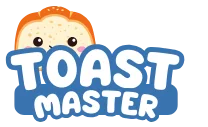In a world where design reigns supreme, mastering Figma can feel like discovering the Holy Grail of creativity. Whether you’re a budding designer or a seasoned pro, Figma classes are your golden ticket to transforming ideas into stunning visuals. Imagine turning your chaotic sketches into sleek prototypes faster than you can say “collaboration.”
Table of Contents
ToggleOverview of Figma Classes
Figma classes cater to individuals at various skill levels, ensuring that both beginners and advanced users can benefit. These classes cover essential topics like design principles, prototyping techniques, and collaboration tools. Each session focuses on practical applications, enhancing learning experiences through hands-on projects.
Instructors often utilize real-world examples to demonstrate the versatility of Figma. Learning to navigate the interface efficiently plays a critical role in mastering design tasks. Furthermore, classes typically incorporate exercises designed to reinforce key concepts, ensuring students grasp advanced features like components, variants, and interactive design.
Participants in these classes gain access to resources such as templates and community discussions. Networking opportunities often arise, connecting learners with experienced designers and industry professionals. Feedback sessions provide insights that lead to improved design solutions.
Online platforms increasingly host Figma classes, making them accessible from any location. Asynchronous learning options allow students to progress at their own pace. Certificate programs enhance resumes, showcasing verified skills that attract employers’ attention.
Ultimately, strong familiarity with Figma can significantly elevate a designer’s portfolio. Mastering this tool through structured classes fosters creativity and efficiency. Continuous practice and engagement with the Figma community contribute to a deeper understanding of design workflows.
Benefits of Taking Figma Classes

Taking Figma classes offers numerous advantages for aspiring and established designers. Skill enhancement and career growth stand out as primary benefits, underscoring the importance of commitment to continuous learning.
Skill Development
Developing design skills fosters creativity and technical proficiency. Figma classes provide hands-on experience with real-world projects, enhancing practical knowledge and understanding of design principles. Gaining familiarity with prototyping tools and collaboration features promotes confidence in using Figma effectively. Practicing interactive design boosts one’s ability to create engaging user experiences. Classes often incorporate feedback sessions, allowing participants to refine their techniques and learn from peers. Engaging with instructors who share industry insights further enriches the learning process. Emphasizing advanced features helps learners produce sophisticated designs that resonate with audiences.
Career Advancement
Advancing a career in design becomes more attainable through Figma classes. Participants acquire industry-relevant skills that are highly sought after by employers. Grasping Figma’s collaborative capabilities positions designers favorably for team-oriented roles. Earning certificates from reputable programs enhances resumes, demonstrating commitment to professional development. Networking opportunities during classes create connections with industry professionals. Building relationships can lead to job referrals and mentorship possibilities. Understanding design workflows also prepares individuals for challenges in various work environments. Overall, enhanced expertise in Figma directly correlates with improved job prospects and career satisfaction.
Types of Figma Classes
Figma classes come in various formats and skill levels, catering to diverse needs.
In-Person vs. Online Classes
In-person classes offer direct interaction with instructors and peers for real-time collaboration. These sessions create an engaging environment, fostering immediate feedback and hands-on practice. Online classes, however, provide flexibility and convenience, allowing learners to access materials at their own pace. Asynchronous learning options suit busy schedules, enabling participants to revisit lessons as needed. Both formats emphasize practical skills, but personal preferences and learning styles dictate choice.
Beginner, Intermediate, and Advanced Classes
Beginner classes focus on essential design principles and basic Figma tools, guiding newcomers through foundational skills. These sessions introduce users to the interface, enabling them to create simple prototypes. Intermediate classes delve deeper, covering topics like components and design systems. Participants learn to implement more complex features, enhancing their design capabilities. Advanced classes emphasize interactive design and collaborative workflows, equipping seasoned designers with strategies to tackle high-level projects. Each tier builds on the previous one, ensuring a structured learning experience tailored to individual progress.
Popular Platforms for Figma Classes
Various online platforms offer Figma classes, catering to different learning preferences and skill levels.
Coursera
Coursera provides access to Figma courses from renowned universities and organizations. Many classes focus on hands-on projects, enabling participants to apply concepts in real-world scenarios. Through structured assignments, learners develop a solid understanding of Figma’s essential tools. Certificates awarded upon completion enhance professional credibility. Courses often include quizzes and peer feedback for improved learning outcomes. Flexible scheduling allows learners to balance studies with other commitments.
Udemy
Udemy hosts a wide range of Figma classes for various skill levels. Instructors on the platform often use engaging video lectures and exercises to teach design principles effectively. Participants can access course materials anytime, ensuring convenience for diverse schedules. Many courses emphasize practical application, guiding learners through project-based assessments. Learners value community interaction through Q&A sections, enabling direct support. Users often appreciate lifetime access to courses, allowing for continued learning and refreshers as needed.
Investing time in Figma classes can significantly boost a designer’s capabilities. With a structured approach to learning and a focus on practical applications, these classes prepare individuals for real-world challenges. The flexibility of online formats and the depth of in-person interactions cater to diverse learning preferences.
As designers enhance their skills through feedback and collaboration, they not only improve their portfolios but also open doors to new career opportunities. Embracing Figma as a core tool in design practice fosters creativity and efficiency, making it an invaluable asset in today’s competitive landscape. By pursuing Figma education, designers can stay ahead in their field and contribute meaningfully to collaborative projects.




